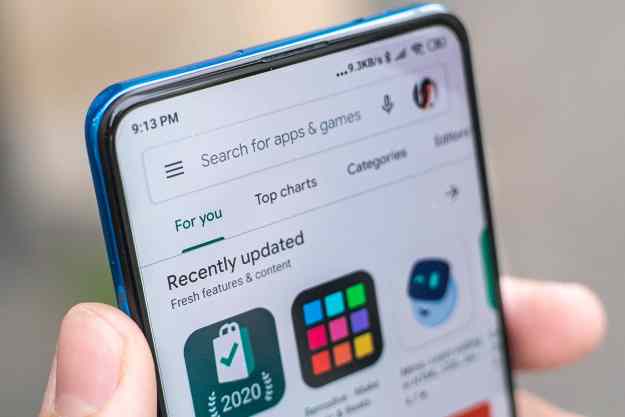More than two-dozen Android photo-editing and fashion apps in the Google Play Store were found to contain malware, cybersecurity firm Symantec said.
In total, the company uncovered 25 malicious apps in the Play Store, which were downloaded more than 2 million times. Symantec reported the malicious apps to Google on September 2 and all the apps have since been removed. That said, they might still be on your phone. If so, you should delete them as soon as you can.
Symantec said that the 25 apps shared a similar code structure, which could point to a link in between developers of these malicious apps. The majority of the apps in question were photo-editing apps or fashion apps.
Here’s the list of apps that were found to be infected with malware:
-Auto Blur Photo
-Auto Cut Out (Free)
-Auto Cut Out Pro
-Background Cut Out Pro
-Blur Image Plus
-Blur Image Plus (1.0)
-Blur Image Pro
-Cut Paste Photo Editor
-Cut Paste Photo Editor (X 1.0)
-Face Feature
-Fashion Hairstyles Pic Editor
-Fashion Hairstyles Pic Editor 2.4.6
-Image Blur Editor
-Image Blur Editor (Free)
-Image Blur Editor (Unlimited)
-Hairstyles Photo Editor Plus
-Latest Hairstyles (Free)
-Motion On Picture
-Photo Background Editor Pro
-Photo Blur Background Maker 2019
-Photo Collage Maker
-Photo Cut Studio Professional
-Pop Color
-SkyCamera for 2019
-Yasuo wallpapers
How to delete the affected Android apps
If you still have any of these apps installed, definitely uninstall them immediately. If you’re not sure how to delete an Android app, check out our handy guide for instructions on how to do just that.
Symantec said that the malware mostly targeted aggressive and frequent advertisements to users within the apps.
In some cases, Symantec said that developers created a malicious copy of a trending app on the Google Play Store to try to get people to download their malware.
This is the third time in a month that serious malware was discovered in Android apps on Google’s official store Earlier this month, 24 malware-infested Android apps were found to be infected with the “Joker” malware on the Google Play Store. The malware was designed to sneakily sign users up for subscription services, ones that they might be charged for over the course of several months before they even realize that they’re subscribed.
In August, a popular scanner app called CamScanner was found to have malware that was capable of executing and downloading additional unwanted files on its own in the background.
Digital Trends reached out to Google to comment on the most recent removal malicious apps, and how the company is being proactive in preventing the spread of malicious apps. We’ll update this story once we hear back.
Editors' Recommendations
- The 1Password Android app just got a huge upgrade
- If you have one of these apps on your Android phone, delete it immediately
- Guess how much Apple has paid App Store developers — you won’t even be close
- App subscription fatigue is quickly ruining my smartphone
- App developers get relief from Google tax in one of Android’s biggest markets



